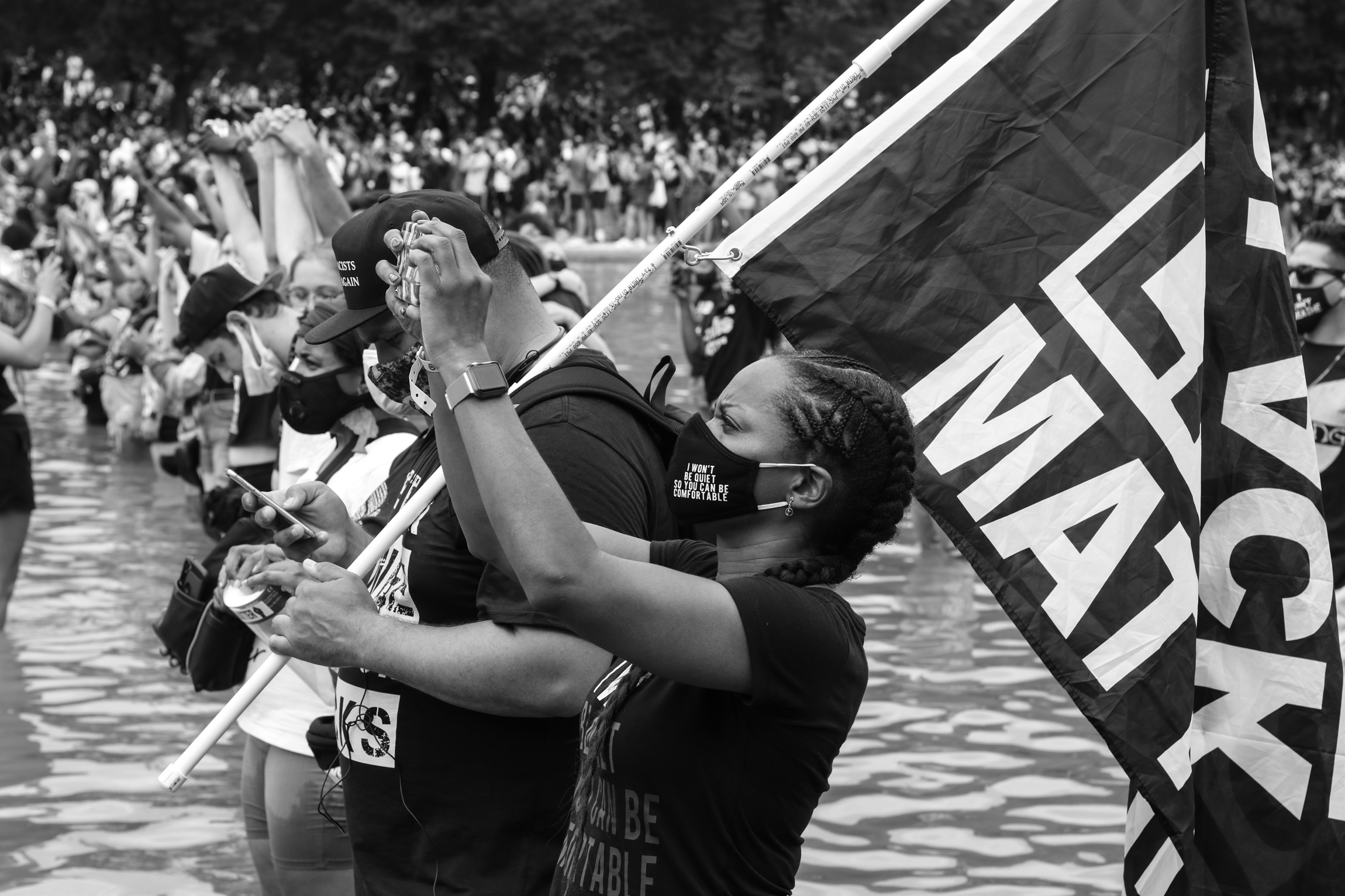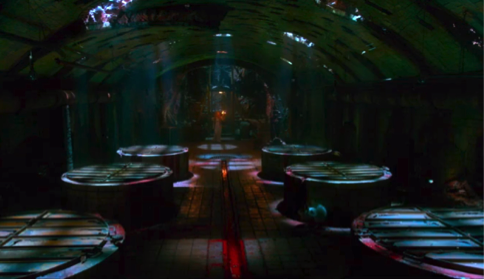Black Studies in the Digital Crawlspace
By Darren Mueller Featured image: I won’t be quiet so you can be comfortable, Washington DC, August 2020, Copyright Erica Jae. Let our rejoicing riseHigh as the listening skies,Let it resound loud as the rolling sea.—James Weldon Johnson, “Lift Every Voice and Sing”1 Listen to pianist Jaki Byard. About seven minutes into Charles Mingus’s lengthy 1964 performance of “Fables of Faubus,” Byard’s solo emerges out of the slowly decelerating ensemble. He jumps from the dramatic to the playful to the playfully dramatic through quotation, interweaving a number of quick ascending scales between melodic fragments of “Yankee Doodle Dandy.” Dannie Richmond’s snare drum echoes Byard’s revolutionary invocation (7:30). Rather than the expected resolution to “Yankee Doodle,” Byard instead seamlessly transitions into “Lift Every Voice and Sing.” Despite his hymn-like recitation, he dwells in restlessness. A few virtuosic flourishes travel into the highest range of his instrument (7:55) as if echoing the first stanza of James Weldon Johnson’s poem: “Let our rejoicing rise / High as the listening skies.” Eventually, Byard transitions back into a halting, even …


